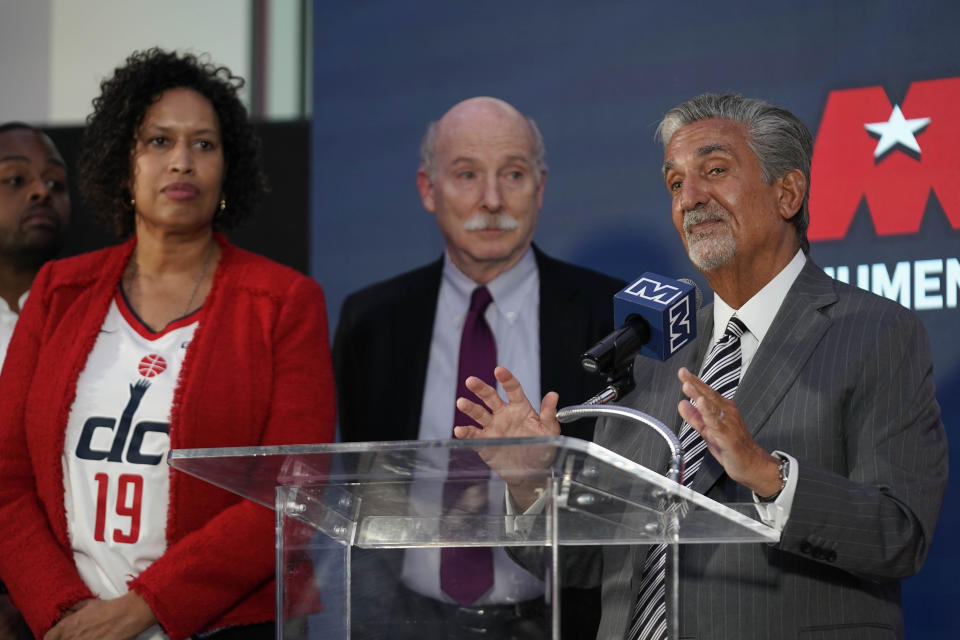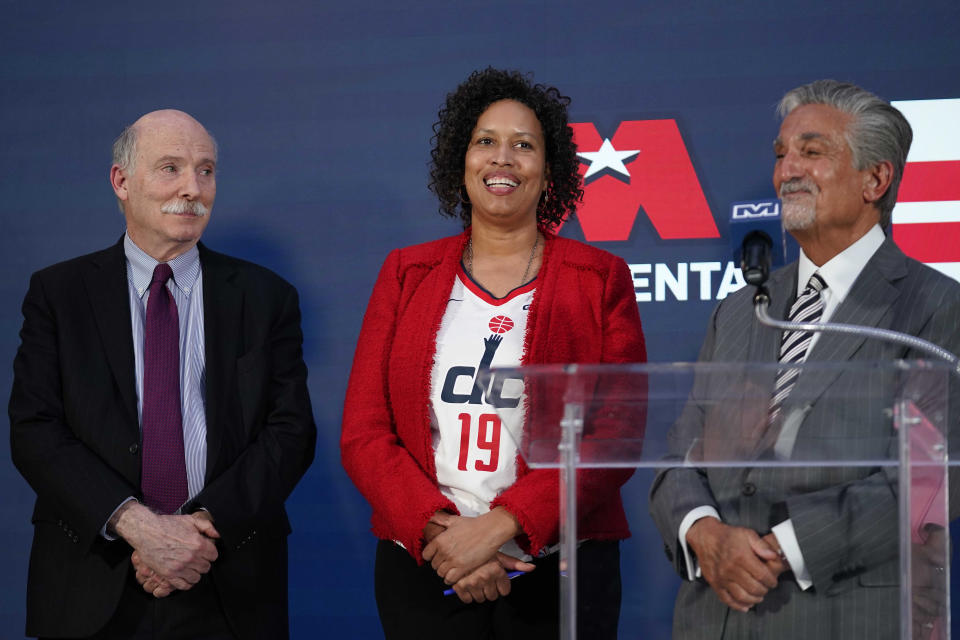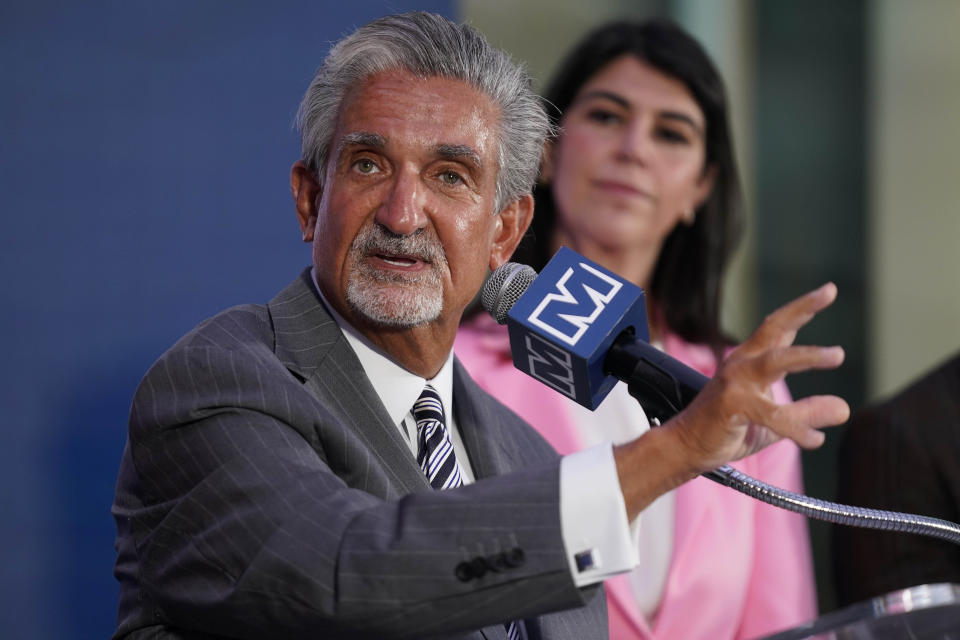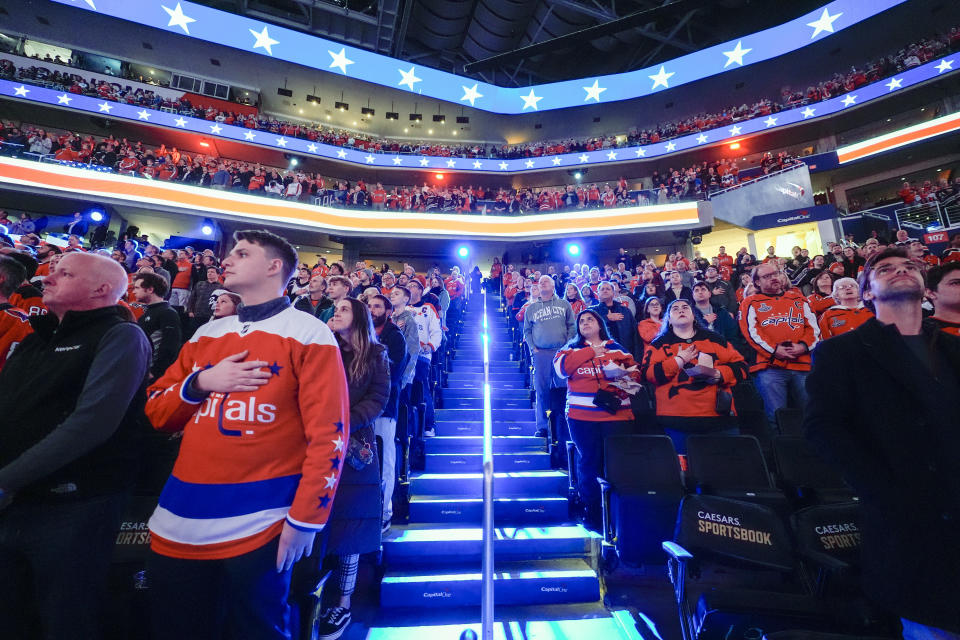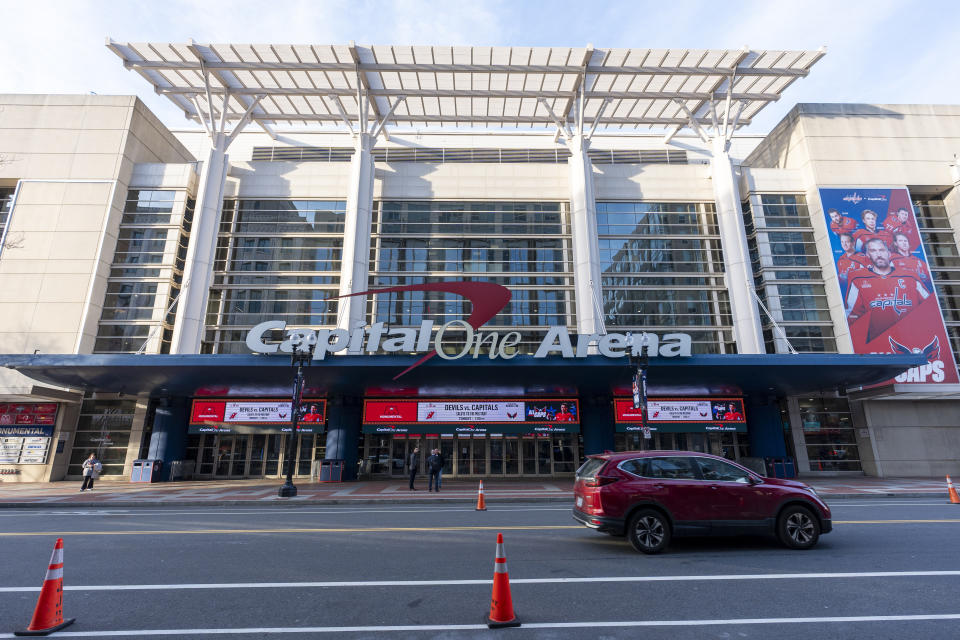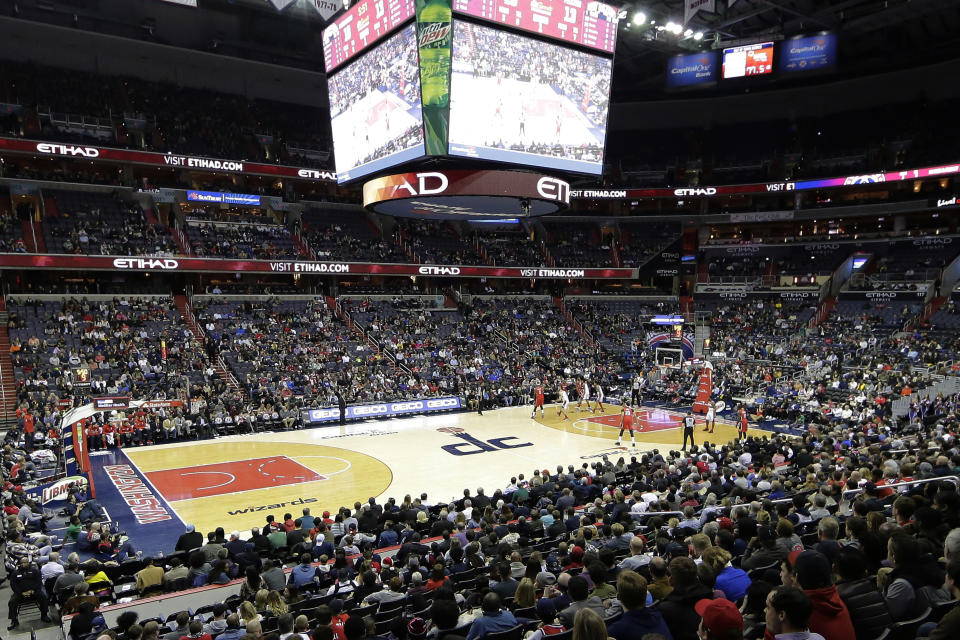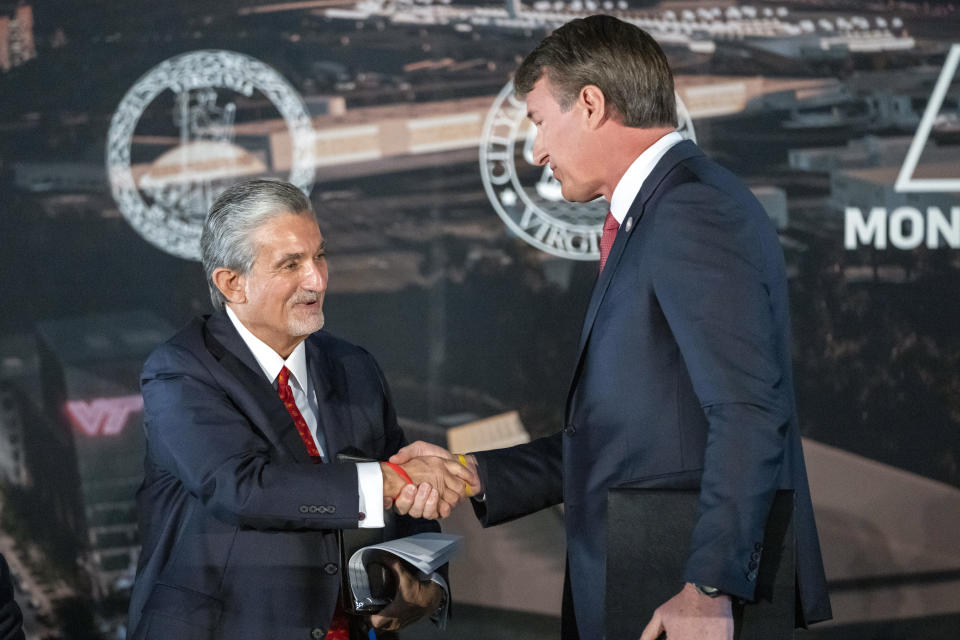Collapse of NBA, NHL arena deal prompts recriminations, allegations of impropriety in Virginia
RICHMOND, Va. (AP) — The majority owner of the Washington Wizards and Capitals, Ted Leonsis, told a crowd in December he had “goosebumps” at the thought of moving his NBA and NHL teams from Washington to Virginia, “if all goes as planned.”
It did not.
Leonsis' handshake deal with Republican Gov. Glenn Youngkin to relocate the teams to a taxpayer-backed arena in Alexandria collapsed Wednesday, weeks after a bumpy slog of a defeat in the Virginia General Assembly. Leonsis, apparently not willing to wait for a second shot in Virginia, reemerged in Washington, which had offered his Monumental Sports & Entertainment a more than half-billion-dollar arena deal to stay.
The demise of the project, a top priority for Youngkin, set off an extraordinary round of bitter recriminations among Virginia officials and companies that were parties to the deal, including allegations of possible impropriety and slander. It also sparked fears about impacts to the state’s future economic development prospects.
“We made mistakes. I know the governor made mistakes. Monumental made mistakes. JBG made mistakes. And I’m sure the General Assembly made mistakes,” Alexandria Mayor Justin Wilson said of the key players.
The outpouring of blame began when Alexandria announced the negotiations were over Wednesday, in a statement that expressed disappointment in “what occurred between the Governor and General Assembly.”
Democratic leaders of the General Assembly blamed Youngkin.
“He mismanaged the process,” said Senate Majority Leader Scott Surovell, who had agreed to sponsor legislation underpinning the deal. The legislation called for a quasi-governmental entity to issue bonds to finance most of the project, repaid through a mix of projected tax revenues recaptured from the development. Surovell's bill never made it out of his own chamber — due to opposition from one of his colleagues, powerful budget committee chairwoman L. Louise Lucas — even though a companion bill passed the House of Delegates.
House Speaker Don Scott faulted the governor for bringing the Legislature into the conversation too late in the game.
Youngkin told The Associated Press in an interview he believed “politics and personal agendas” in the Senate had derailed what he's called the single largest economic development deal in Virginia's history.
Leonsis, in a news conference with D.C. Mayor Muriel Bowser, took a couple of jabs at Virginia. Meanwhile, JBG SMITH, a real estate company and partner to the deal as the proposed developer, unleashed.
In a statement, JBG CEO Matt Kelly questioned the motives of key Senate leaders including Lucas, who had stymied the legislation and gleefullycelebrated itsdemise on social media. Specifically, JBG questioned whether the arena was blocked as part of a “scheme” to benefit a competing developer, Comstock, that had been pushing for a northern Virginia casino. Kelly’s statement did so without mentioning any lawmaker or company by name, but while including enough context to make the criticism understood to people following the matter closely.
Kelly said the deal was derailed due to “partisan politics.” Without offering proof, he also suggested the outcome was influenced by “special interests and potential pay-to-play influences within the Virginia legislature.”
There was, in fact, an 11th-hour pitch to combine the casino and arena, Surovell said. But it was just one of a number of suggestions he made over the course of the session to try to salvage the arena deal, he said.
Lucas said on social media that “the incompetent losers behind the effort are out telling lies and conspiracy theories" instead of admitting their own failure.
Comstock CEO Chris Clemente told AP the idea of pairing the casino with the arena had been bandied about by lawmakers of both parties. He rejected the notion that there was any kind of coordinated attempt to hold off the initial arena deal in favor of an arena-casino pairing, calling JBG's statement “slanderous” and “ridiculous.”
Wilson, the mayor, said in an interview that Richmond's opaque legislative process erodes confidence. He cited the work of political consultant Ben Tribbett, who is paid by both Lucas and by Comstock, as creating an appearance of impropriety that casts doubt on whether the Legislature was acting in the public interest.
“I find the whole thing unseemly," he said.
Tribbett said that it’s not unusual for a consulting business to advise many kinds of clients, and that each of his clients’ interests are kept confidential.
“If you’re an architect, it’s not a conflict to work on multiple buildings. And if you’re a political consultant, it’s not a conflict to work with multiple political clients,” Tribbett said.
A number of other factors contributed to the Alexandria project’s demise, according to interviews with lawmakers and others close to the deal-making, who for months described the talks as chaotic, or worse.
Youngkin never enjoyed vocal support from Republican legislators, who mostly kept their heads down as the deal imploded. The project also faced well-organized local opposition.
Alexandria’s economic development director, Stephanie Landrum, said the failure to close the deal because of what she sees as politics will cause other prospective businesses looking to come to the commonwealth to question whether to come to Virginia.
But Greg LeRoy, executive director of incentives watchdog Good Jobs First, said it’s laughable to think that turning away a sports team seeking public financing will hurt the state’s business climate.
“Other regions would kill for a business climate like northern Virginia’s," said LeRoy, whose organization opposed the deal.
Youngkin said Virginia deserved better than the way things panned out, but he understood why Leonsis moved on.
“Eventually you’ve got to go negotiate something else. And, boy, did D.C. provide him with a remarkable alternative,” he said.

